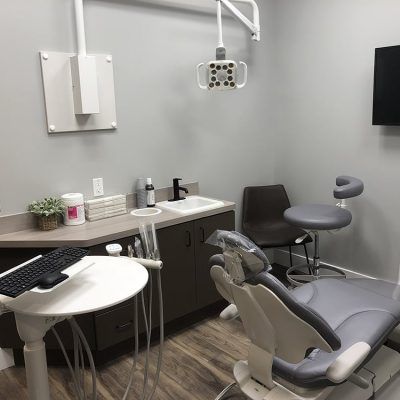
We use our jaws extensively throughout the day for eating, talking, and smiling. We usually do not stop to think about how vital jaws are in everyday life until problems start to arise. At River Run Family Dentistry we want to ensure that our patients are able to keep their jaws healthy and fully functioning.
TMD, or temporomandibular joint disorder is a condition that affects over 10 million Americans. It affects one’s ability to properly maneuver their jaw as normal due to the inflammation or misaligning of the joint itself. The symptoms of this can include locked jaws, pain when opening and closing the mouth, and a clicking sound as the jaws move.
The Temporomandibular Joint
What allows the jaws to function and where problems arise if compromised is the temporomandibular joint. This joint is what connects the jaw to the skull and allows you to open and close your mouth by sliding akin to a door or moving your fingers. Essentially, TMD is a form of arthritis that affects the jaw.
TMD vs TMJ
TMD and TMJ are used interchangeably to describe the same symptom, but TMD refers to the disorder itself while TMJ refers to the temporomandibular joint. If you see either of these to describe the condition, they effectively mean the same thing even if TMD is the technically correct term.
How Do People End Up With TMD?
There are multiple ways one can have TMD. It can be self-inflicted if the person has bruxism – the act of grinding teeth together on a frequent basis. TMD can also be considered an injury if it results from a blow to the jaw. And finally, someone can simply be born with the condition. Whatever the case may be, it is important to get it looked at as untreated TMD can lead to the condition becoming even worse as time goes on. This isn’t always the case, but it is better to be safe just in case.
TMD Treatment
If it is a mild case of TMD, the condition can be monitored at home with jaw exercises and avoiding actions that can put a strain on the jaws such as teeth grinding or chewing on ice cubes. Even so, it is important to visit us if you are experiencing the symptoms of TMD. For dealing with mild TMD, mouth guards for nighttime and/or prescribed medication to soothe anxiety and prevent inflammation to prevent the condition from developing further and relieve pain.
For a permanent cure to TMD, and for patients who have a severe case. Surgical procedures can help relieve TMD and normalize their jaw functionality.
Who To See For TMD
At River Run Family Dentistry we have worked with many patients suffering from various levels of TMD and take it just as seriously as any other oral health problem. If you wish to speak to us about TMD symptoms, you can call our office at 830-387-3040 to ask any questions or schedule an appointment. Taking the first steps to help with TMD will lead to a better quality-of-life in your day to day tasks. We are looking forward to working with you!
